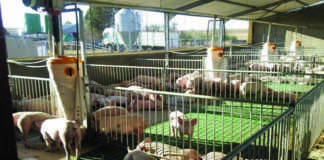According to the forum, stock theft stripped the economy of R500 million during the 2012/2013 period. Stolen were goats to the value of R48 million, sheep to the value of R206 million and cattle to the value of R342 million.
The Animal Identification Act (Act 6 of 2002) makes provision for the compulsory marking of livestock, while the Stock Theft Act (Act 57 of 1959) controls the movement of livestock. Both these Acts have been put in place to support the industry and SAPS to combat stock theft and make it easier to recover stolen livestock.
But it appeared that a large part of the livestock trade did not comply with the provisions of these Acts, said the NSTPF. Accordingly, it requests:
- That all livestock owners register a unique brand mark in their name and apply it to all livestock in their possession in the prescribed manner as described in the Animal Identification Act (Act 6 of 2002).
- The completion and submission of the ‘Document of Identification’ and ‘Stock Removal Certificate’ with all transactions.
- That all livestock buyers, auctioneers, feedlots and abattoirs confirm livestock ownership and refuse to accept livestock that is not marked or where the necessary Document of Identification and Stock Removal Certificate are not supplied.
- That all Documents of Identification be kept for 12 months.
The National Stock Theft forum request that all role players in the red meat industry urgently play an active role in stock theft prevention. Stock theft Units are instructed to strictly apply the Animal Identification Act, (Act 6 of 2002) and the Stock theft Act, (Act 57 of 1959) to all buyers of livestock as from 1 January 2014 with zero tolerance.
For more information, go to www.redmeatsa.co.za












